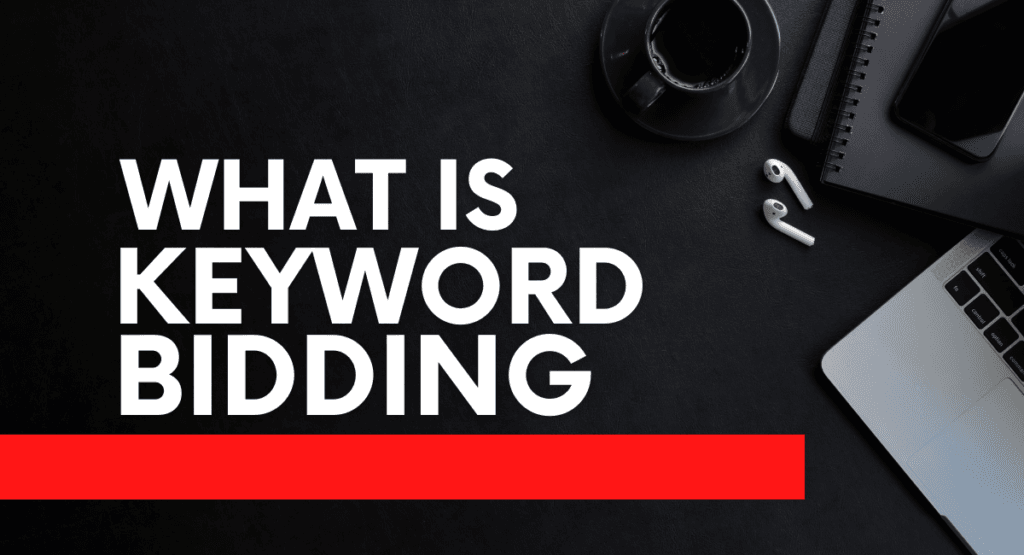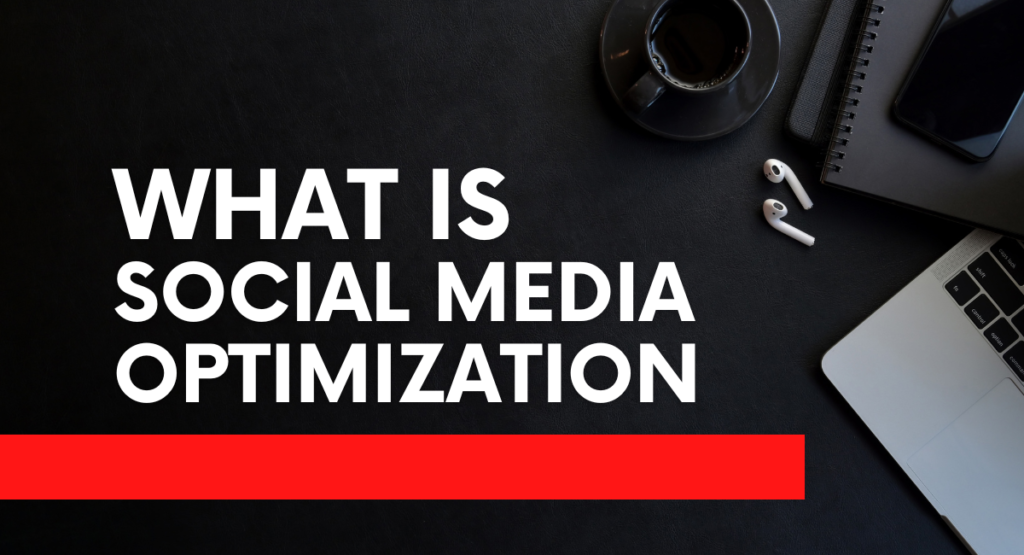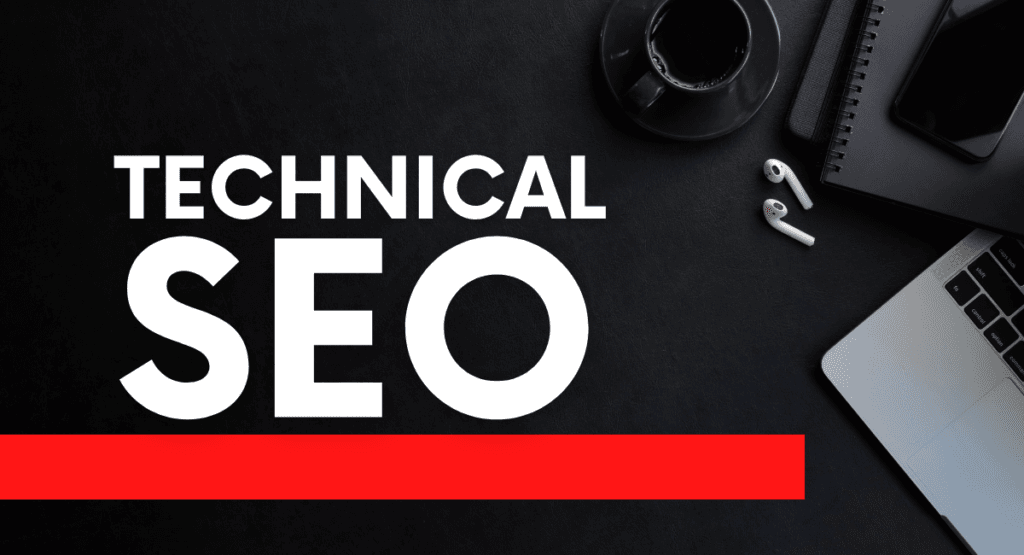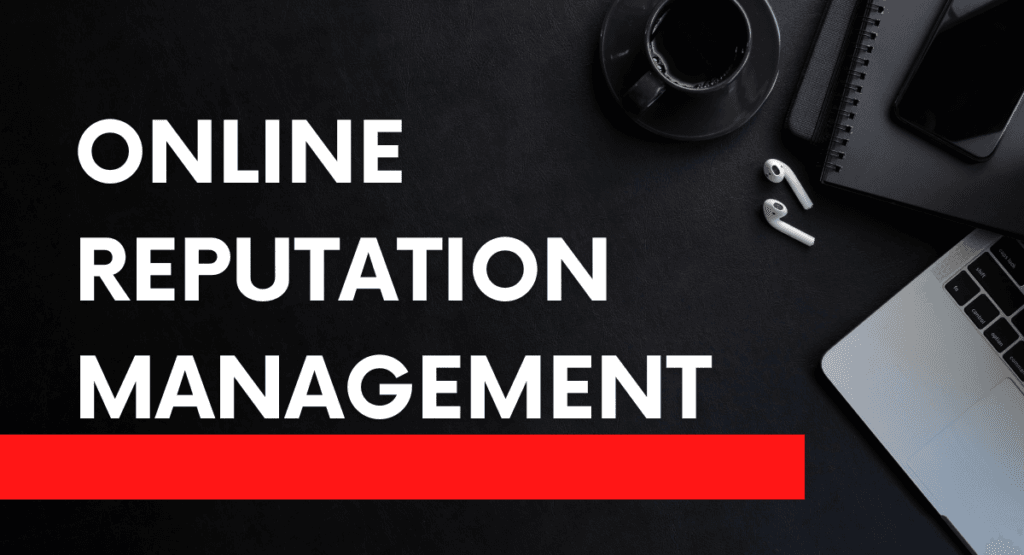Introduction
PPC is the keyword-bid-based campaign in digital advertising. In this, the marketer is trying to get the consumer to search for and view his advertisement through buying into specific keywords concerning his goods and services. The process is quite competitive on sites like Google Ads, where the highest bidder mostly tends to gain the higher ad positions. Being able to efficiently make keyword bids can prove to be very helpful in maximizing advertising budget, increasing visibility, and acquiring relevant leads for businesses. With knowledge of how strategically biddable keywords are, you will definitely see the workings of such advertisements and just exactly how much of a difference they can bring to your overall business strategy.
Brief overview of keyword bidding in digital advertising.
While the willingness of an advertiser to pay per click influences advertising placement, there are more important factors concerning ad quality and relevance. Bidding for keywords is the process of competing over placements by establishing bids on certain keywords that will help businesses’ advertisements reach the right crowd at the right time and increase traffic and conversions. Bids submitted to search engines, such as Google, will determine which advertisement to display when people search for these terms.
Importance of keyword bidding in maximizing ROI and ad performance.
The advertisers can control their budget while conserving unnecessary expenses, hence improving the effectiveness of the ad campaigns by efficient keyword bidding. Effective keyword bidding directly relates to improved ad performance and exposure. It ensures that ads are displayed when consumers are actively searching for equivalent products or services, hence increasing click-through rates and conversion. Efficient keyword bidding enables businesses to target potential customers more accurately.
What Is Keyword Bidding?
Keyword bidding is the process of determining the price you are willing to pay for a click on your ad for a certain term. Competitors bid on those phrases through search engine platforms, such as Google Ads. The bidding system selects which ads appear each time a user searches for the keyword based on how much the advertiser is bidding, ad quality score, and relevancy. Determining the numbers of bid selections, choosing appropriate keywords, and monitoring and adjusting these bids periodically are all crucial in achieving peak performance, increased visibility, and increased conversion rates through keyword bidding.
Understanding Keyword Auctions
An auction occurs when several advertisers are placing bids on the same term. Such companies as Google advertising use an automated auction system ranking advertisements through a combination of the bid amount, ad quality score, and relevance. This is because Google is a company that prioritizes user experience and thus can win with lower bids ads with higher quality and relevance. The approach thus ensures that the highest-quality ads relevant and useful to users are displayed. It is beneficial to both the advertisers and the searchers.
- Explanation of keyword auctions on platforms such as Google Ads
Keyword auctions occur on platforms such as Google Ads once the terms a user searches for have matched up with what marketers are bidding on; in real-time auctions, advertisers compete with each other, set maximum bids (the maximum amount they are willing to pay for a click), and select keywords relevant to their business. Google sets rank by the sum of the bid and the Quality Score of the ad, taking into account factors of relevance, click-through rate, as well as landing page experience. Cost efficiency is guaranteed because the marketer will only pay when his ad is being shown, though the most ranked ads will appear on the top positions.
Types of Keyword Bids
The objectives of the campaign determine the keyword bids on advertising platforms such as Google Ads. Common varieties include Cost-Per-Click (CPC), which charges an advertiser for each click a user makes; Cost-Per-Mille (CPM), which focuses on exposure and impressions; and Cost-Per-Acquisition (CPA), in which bids target generating conversions. Each type of bid assists with reaching specific marketing goals.
- CPC (Cost-Per-Click): How it works.
To run their adverts, the advertisers first have to bid for the keywords on Google Ads. The process occurs like an auction where the advertisers set their maximum bid ready to spend for each click. Google analyses the bids and ad quality to come up with the ad rank. The best-ranked ads are what would show to the users and therefore exhibiting a cost-benefit ratio.
- CPM (Cost-Per-Mille): Focus on impressions.
The impression-based CPM, or Cost-Per-Mille, is the type of strategy where marketers pay for every thousand impressions that their ad receives. This is the most common form of a strategy used in brand awareness campaigns since it is all about getting as much exposure as possible without focusing on direct clicks or conversions. In most companies, CPM is suitable for increasing clientele and visibility, mainly when advertising through a display. Display Advertisement CPA bidders are goal-oriented, meaning their focus is on the acquisition instead of the clicks or conversions.
- CPA (Cost-Per-Acquisition): Goal-oriented bidding.
Conversion, over clicks or impressions, the goal of CPA, or cost per acquisition, bidding. The advertiser establishes a target cost per acquisition and pays only when the ad results in that action, in this case, sales sign-up. This goal-oriented bidding will ensure efficient budget utilization with campaign performance and ROI optimization.
The Importance of Keyword Bidding in PPC Campaigns
Bidding Strategy and ROI
- How effective bidding impacts your return on investment.
Effective bids in online advertisement mean that the right target audience receives your advertisements without overspending. What is a direct result of return on investment is effective bids through digital advertising. Other efficient techniques to effective bidding are adjustment of rates based on indicators of performance. It increases ad exposure without letting expenses balloon out of control. Optimized clicks from relevant people can lead to an increase in conversions and, consequently, the return on your advertising investment.
Reaching the Right Audience
- Using keyword bids to target specific user intent.
Keyword bids enable targeting specific user intent by centering on terms which fall in various stages of the buyer’s journey. For instance, higher bids on terms associated with a strong intent to buy attract clients who are near purchase, therefore ensuring that the appropriate people have seen your ads. The increase in both engagement and conversion rates therefore comes from intent-driven keyword targeting as it ensures the right people do see your ads.
Controlling Ad Spend
- How keyword bidding helps manage and optimize advertising budgets.
On the basis of keyword bidding, resources can be distributed effectively. That is why keyword bidding is necessary when it comes to controlling and optimizing ad spending. Through keyword bidding, you can give more priority to high-converted keywords because with it, one can consider different bids due to competition, performance information, and the value of keywords. You can improve your return on investment by wisely spending your money in the right places without waste on low-conversion terms.
Types of Keyword Bidding Strategies
Manual Bidding
This is a great thing about manual bidding; the advertisers have complete control over the levels of bids for keywords or ad groups. Manual bidding would suit best those advertisers who have their sufficient time to closely monitor their campaigns and those wishing to change the strategy in terms of keyword performance. It suits best most companies that require highly precise control over their expenses on advertisements.
- Advantages and when to use manual bidding.
The best advantage that comes with manual bidding is the full control of the amount that a marketer is willing to spend for each click, thus allowing them to manage the budget stringently. Manual bidding will be effective for campaigns with more or less freedom to bid; when some audiences or keywords are performing much better than others. If lots of customization need to be done, then this should be used in such campaigns.
Automated Bidding
Google’s algorithms enable automatic bidding to automatically adjust bids with the odds of achieving a desired outcome either clicks or even conversion. Typical strategies for typical auctions include max conversion, and ROAS. In most ways, it is saving time because it leverages machine learning to generate real-time adjustments and serves massive campaigns or even non-fluctuating results.
- Overview of Google’s automated bidding options .
Summary of Google’s automated bidding strategies (Target CPA, Maximize Conversions).
Google provides a number of automatic bidding strategies to help businesses maximize their campaign’s potential. Target CPA is an algorithm for achieving conversions at a given cost per action. For its part, Maximise Conversions is a machine-based algorithm adjusting the bids according to real-time user behavior and conversion likelihood. It automatically sets the best possible bid within a budget to maximise conversions.
Enhanced CPC (eCPC)
Enhanced Cost-Per-Click is one of semi-automated bids, that changes a human’s actual bids based on conversion probability. Although it still makes the user be in control of their ads, it lets Google adjust the price a little bit based on that conversion probability. Hence, campaigns which desire to combine enhanced automated performance with manual supervision will benefit from eCPC.
- How eCPC works and why it’s a hybrid approach.
Enhanced cost-per-click, or eCPC, is a hybrid kind of bidding strategy in which automated and manual methods are used. It changes the manual bids either higher or lower according to the probability of conversion. Google controls and automates by making the bids for hits higher when they have more chances of converting and lowering them for hits that have a lesser chance. The value to be obtained is defined by the advertisers.
Best Practices for Keyword Bidding Optimization
Keyword Research and Selection
- Importance of selecting the right keywords based on volume and competition.
Consider the search volume and competition in choosing your keywords so that your advertisement reaches the correct audience instead of overspending. High-volume keywords may indeed drive traffic but may also go against your pocket by bringing up very competitive keywords. More often than not, finding the right balance between moderate-volume and less competitive keywords helps make more economical and relevant interaction.
Negative Keywords
- How to use negative keywords to refine your bidding strategy.
Negative keywords enable you to optimize your bidding strategy by preventing your ads from appearing on irrelevant enquiry terms. Eliminate some words and focus your spend on high intent words, so it can raise the chance that you’ll bring in more quality traffic, hence increasing your ROI.
Monitoring and Adjusting Bids
There will be metrics like cost-per-click, conversion rate, and click-through rates that help in showing trends and subsequent changes to ensure wise changes.Modulations based on the performance data assure better return on investment by optimizing the advertising budget and increasing the overall effectiveness of the campaign as a whole.
- Importance of continuously monitoring performance and adjusting bids.
This would mean a continuous change in bids and tracking keyword performance. The market dynamics, competitive strategy, and the search trends change over time. Changing your bids based on data helps to optimize in terms of budgeting. Continued tracking keeps the efforts competitive through optimization of ad performance, minimizing unnecessary spending, and targeting enhancement.
A/B Testing for Bidding Strategies
One of the ways in which keyword bids can be optimized is through A/B testing. Because multiple campaigns can be run simultaneously using different bid strategies, you can then compare performance indicators such as conversions and click-through rates. This way, the best strategy for bidding is found and data-driven decisions are made that bring about improvements in campaign performance and return on investment.
- Running A/B tests to optimize keyword bids for better results.
Through A/B testing different keyword-bid values, you can figure out which bid values are the most efficient. You can measure how cost-efficient, conversion-wise and click-through rate-wise different variations might be. This strategy may lead you to eventually achieve your best campaign outcomes by making sure you spend on the most profitable keyword strategies.
Common Challenges in Keyword Bidding
Overbidding or Underbidding
While underbidding puts your ads at risk of not being seen at all, overbidding can quickly deplete your budget. To find the ideal balance of objectives and financial and competitor constraints, you have to consider all these aspects. Test bids over time to determine the sweet spot that continues to produce outcomes without crossing into spending ceilings. Bids should then be adjusted to bring in the most return on investment.
- How to find the right balance
It demands constant observation and adjustment in order to get the appropriate balance between overbidding and underbidding. Analyze your ad performance indicators such as click-through, conversion rates, or any other factors that could be affecting your campaign, considering keywords, ad rank, and quality score. You can use automated strategies that meet the business objectives of your ad campaign, such as target CPA or ROAS, in order to retain control and optimize its cost-effectiveness.
High Competition Keywords
Manage super-competitive keywords: It is both costly and complicated. Make ads better, much more relevant if you are to win. Improve landing pages and ad text to push the Quality Score, focus more enquiries with your long-tail words, and bid strategy changes based on these insights. And it could pay to have a strategy of negative keyword use and testing alternate ad formats.
- Tips for competing in high-bid keyword spaces.
Ad relevance and Quality Score are a must in high-bid keyword spaces. Make sure your landing pages are in line with intent, apply ad extensions, and create compelling ad wording. To optimize for efficiency and return, consider focusing on less competitive times or locations, use automated bidding systems, and use negative keywords to eliminate pointless traffic.
Click Fraud and How to Prevent It
When competitors or bots click your ads deliberately, you are losing money. This is called click fraud. Use anti-fraud software, deny admission to suspicious IP addresses, and monitor anomalous increases in traffic to avoid it. Sometimes, ad systems, like Google Ads, automatically delete fraudulent clicks to prevent click fraud. Prevented losses require analysis of data overtime and a keen eye to the minute details.
- Identifying and preventing click fraud in your campaigns.
Click fraud detection requires observation. Monitor behaviors that characterize low conversion rates or unusual high click activities from a certain IP address and location. Use fraud click detection tools, block suspicious IP addresses, and utilize resources such as invalid click data from Google Ads.
Tools to Help with Keyword Bidding
Google Keyword Planner
- Overview of the tool and how to use it for keyword bidding insights.
Free tool called the Google keyword Planner gives competitor insights, search volume data, and even offers keyword recommendations. The tool gives marketers an estimated maximum for which they can place bids on the ads and gives them choices of the most relevant words for usage within their advertisements. Analyzing the data for CPCs with the search patterns of keywords allows the users to potentially make more efficient keyword bids, which promises them the best possible ad placement and effective budget control.
SEMrush and Ahrefs
- How these tools assist in tracking keyword performance and optimizing bids.
Powerful SEO tools like SEMrush and Ahrefs help monitor keywords through metrics like search traffic, competition, and trends. With technologies that unlock high-performing keywords and rank improvement chances, they help optimize bids. Both services are rather productive in advancing bidding strategies since both services offer keyword tracking data, backlink data, as well as thorough insights on your competitors.
Conclusion
Summarize the importance of a strategic approach to keyword bidding
Proper bidding on the right keywords would be the secret to your success in sponsored search campaigns. You maximize your budget allocation by targeting the right audience through smart keyword selection and prioritizing the right keywords. You also maximize your high-performing keywords, such as those boosting traffic and conversion, by reducing low-value keywords’ cost. With strategic bidding, you’re improving ad relevance and your quality score, thus securing better ad placements. A judicious bid process ensures a better return on investment and long-term outcomes of the campaign.
Encourage experimentation and adaptation for the best outcomes in ad campaigns.
Any successful ad campaign needs to be experimental and adaptable. With digital marketing constantly evolving, what may work today may not continue to be effective tomorrow. To best determine the most effective combinations, vary targeting options, ad language, bidding strategies, and creatives. You may optimise your efforts by reviewing data and modifying your strategy in response to performance. Businesses may maintain their competitiveness and enhance their advertising results over time by being flexible and prepared to change with the market and target audience. This will increase both reach and conversions.
FAQ’s
What is keyword bidding in PPC?
The amount bid that is tied to keyword bidding is how advertisers compete to display their ads for specific keywords using PPC or Pay-Per-Click advertising. The more that people are searching on them, the amount bid influences where the ad shows up in the search list.
What’s the difference between manual and automated bidding?
Manual bidding enables the control over the maximum cost-per-click for every keyword, while automated means that the algorithms automatically set a bid relative to a campaign’s goals optimizing either clicks or conversions without further manual adjustment.
How does CPC bidding work?
Cost-per-click bidding allows the advertiser sending the ads to only pay when a user actually clicks on their ads. The search engine will rank the ad based on the highest bid, along with a measure of ad relevance, but the advertisers dictate their maximum willingness to pay for a click.
How can I protect my ad campaigns from click fraud?
To defend against click fraud, limit ad exposure by specific countries, use IP exclusions, use tools for suspicious activity tracking, and third-party fraud detection software that identifies and blocks fraudulent clicks.






